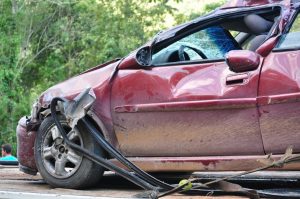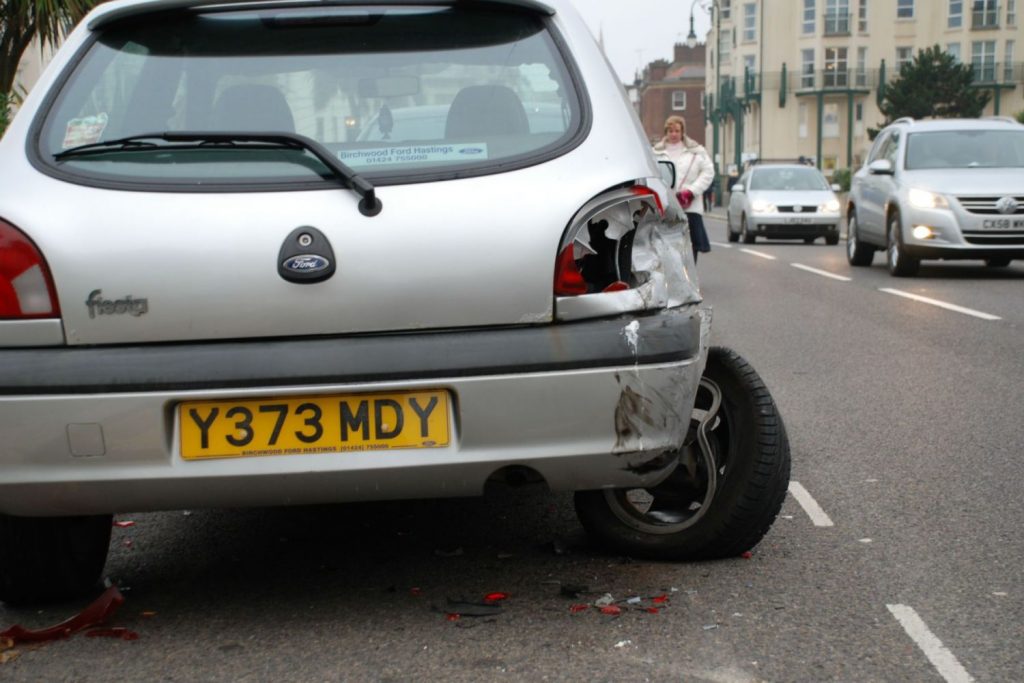An insurance write-off is industry jargon for a vehicle that’s either experienced a significant level of damage to the point that it’s unsafe to go back on the road; or it is still safe to drive but is beyond economical repair from the insurer’s point of view.
If your car has been deemed unsafe, then instead of being repaired, after a while the owner will receive a cash payout for the loss.
Insurance write offs can happen because of a crash, the car is inundated with water during a flood or even because of accidental damage – there are no “hard and fast” rules as to what qualifies as a write off.
If your insurer considers the cost of repairs to be uneconomical your car will be classed an insurance write-off – uneconomical means repairs would cost 50% – 60% of the vehicle’s value, but this could be even lower for a brand new vehicle.
The car will then be kept by the insurer or agent, and the insured driver will receive a cash payout for the loss, usually the vehicle’s ‘market value’ (or slightly under – see below). This is the price your car would have sold for at a dealership before it was damaged or stolen, supposedly.
So, what does a Write-Off Check do exactly?
Quite simply, a Write Off Check will verify if the car has ever been written-off by insurers or underwriters. It’s an advisable action to take when looking at buying a used car, van or motorbike. Our checks will flag up if the vehicle you want to purchase has previously been in an accident, or even worse, written off.
There are numerous reasons insurance companies write-off cars and it always means the vehicle will not be safe to drive. Therefore, it is essential to arrange a car write-off check for any vehicle before agreeing to purchase it. You can sometimes check the status of a write-off easily online, but that depends on the owner reporting it to the DVLA (or the insurance agency).
Should I buy an insurance write off?
It depends.
Firstly be aware that it’s completely legal to sell a Cat N or Cat S car as long as its status is declared. This declaration must be crystal clear… even if the car has been repaired to its “as new” condition. A vehicle bearing any write-off marker will be worth far less in monetary terms, than one with a ‘clean’ history, even if the damage was minor and fully repaired to a high standard – many buyers simply aren’t comfortable with a history of damage.
So should you buy one? Declaring a car’s Cat N or Cat S status is essential, whether selling it or part-exchanging it. If you don’t, the new owner could sue you for damages.
Not everyone is convinced about the merits of buying a Cat N or S damaged/repaired car.
Neil Hodson, managing director of car history check firm HPI, cautions that “the real risk with buying a write-off is paying good money for a vehicle that’s been badly repaired and is a danger to drive, or worse still, should never have been put back on the road in the first place. If a write-off hasn’t been properly repaired, any price is too high.”
On the other hand, Hodson does say that “there are write-off categories that, if repaired professionally, offer good value for buyers”. So, the question is, do you feel lucky? Well, do ya, punk?

How is “Write Off cost” calculated?
Let’s say your vehicle is worth £20,000 and is written-off in an accident (and given CAT B). Your insurance company might offer a settlement of £20,000, less the excess of £300, to give you £19,700.
What if the Write Off Cost is too low?
In the event of any issue between the insurer and yourself regarding categorisation (eg CAT B), the matter should be escalated to an appropriately qualified person who assumes responsibility for the final decision.”
That means it may be worth objecting or even raising a formal complaint.
Insurers employ risk analysts who assess your claim and try to find reasons for not paying out, this often includes low valuations, so you could consider the first offer they make to be a starting point in negotiations and then take it from there, rather than bite their hand off. It’s certainly possible your insurer will increase their bid.
What happens if I buy an insurance write-off?
If you have unwittingly bought a car that the seller knew to be a Cat N or S, the seller is in breach of the law as they should have informed you. Note that the key word here is knew. But even if the seller was genuinely unaware of the car’s damaged status, it’s may still be not of satisfactory quality or fit for purpose. It could possibly not qualify under the ‘innocent misrepresentation’ clause of the Mis-descriptions Act, and Trading Standards may be interested to hear more!
So you would have grounds to take legal action against the seller in all probability, but this is expensive, and time-consuming. Make sure to get a Premium car check from us for only £8.75 to avoid all this hassle in the future!
Cat N and S cars used to have to undergo a Vehicle Identity Check, or VIC, before being allowed back on the road. This was intended to stop criminals selling disguised write-offs to ignorant buyers, but it identified so few cars that it has been abandoned by the government and industry bodies.
So to summarise: In short, category A and B should never be bought, ideally, unless you’re 100% sure what you’re doing. Any that fall under CAT A must be scrapped and B must only be used for parts. If it has been classified as a CAT A or B in a vehicle write off check then the car isn’t safe and should be avoided completely, and our Data Guarantee will certainly not apply.
On the other hand, S and N category write-offs can sometimes be safely bought, and often can be repaired and then drive legally on the road. It’s a case of buyer beware!

I was offered £5,000 less than the market value. Do you have any assistance in providing valuations so i can show my insurer. If I buy a report, will this be of use.
Thanks for the useful article ^^